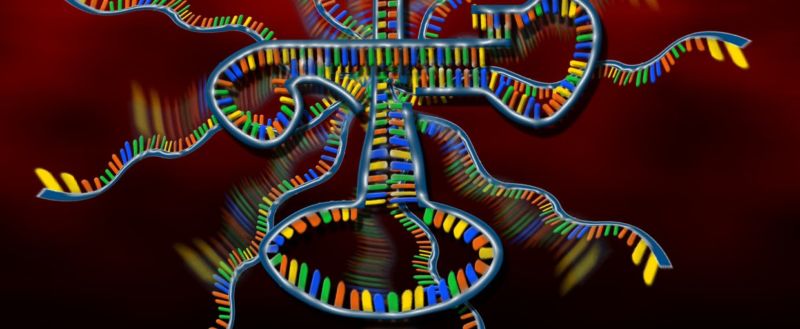New system shows the earliest life could cooperate despite “cheaters”

Enlarge / Populations of RNAs, as in this cartoon, may have helped the first life overcome some limits on complexity. (credit: NASA)
Physics is filled with papers where the authors don't actually do anything-at least not anything empirical. Instead, they explore the math behind a topic and try to gain new theoretical insights, leaving it to someone else to find out whether their insights are actually reflected in the behavior of the real world.
But physics doesn't have a monopoly on this, and there have been plenty of papers in biology that are filled with math and explore how a theoretical population would behave. One area where that's had a big impact on thinking has been in studying the origin of life, where researchers have been struggling to understand how a set of simple self-copying molecules could make their way towards something that looks more like a cell. Now, two Japanese researchers have taken some of these theoretical ideas and shown they can hold in an actual biochemical system.
Overcoming selfishnessWe'll go through the theoretical background first. The work focuses on a challenge faced by the Earth's first self-replicating RNA molecules, namely that they probably weren't that great at self-replicating. Modern cells have multiple systems composed of collections of proteins that identify and repair errors in DNA. The earliest self-replicating molecules had none of that, and probably picked up lots of errors that could disable them. This problem gets worse as the self-replicating molecule grows in complexity, since a longer molecule would mean an increased chance for things to go wrong.
Read 15 remaining paragraphs | Comments